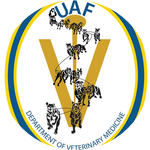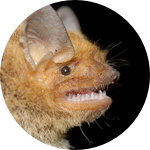About This Project
Leptospirosis is a disease that can be transmitted from animals to humans and is caused by bacteria called leptospires. Leptospires are capable of infecting most mammals, and rodents are a common reservoir. We would like to look for these bacteria in Alaskan rodents. Knowing the status of leptospirosis in Alaskan rodents will allow us to better understand the dynamics of this disease in the north, and to prepare for changes in the transmission of this disease that may occur with climate change.
Ask the Scientists
Join The DiscussionWhat is the context of this research?
The disease leptospirosis ("lepto") is caused by bacteria called leptospires. Leptospires are classified as zoonotic bacteria because they can be transmitted from animals to people. Leptospires are capable of infecting most mammals, and rodents are a common reservoir. In addition to infecting a wide variety of animals, leptospires can survive in water, and a common source of human exposure is water that has been contaminated by the urine of rodents or other animals. As the climate warms, there is likely to be more water on the Alaskan landscape. This may mean that humans and animals in Alaska are at increased risk for contracting lepto. It is important to know how prevalent leptospirosis is in Alaskan rodent populations to plan for managing this disease if it becomes more common.
What is the significance of this project?
The World Health Organization has classified leptospirosis as a “neglected tropical disease of global importance”. It is currently more common in tropical climates, but prevalence in temperate zones is rising and there are recent reports of it in the arctic and subarctic. Very little is known about lepto in the north. We have recently identified leptospiral DNA and antibodies in Alaskan caribou and reindeer, and think that rodents are likely acting as reservoirs. Determining its prevalence in rodents on farms where we have identified positive reindeer will give us valuable information about the ecology of this important global disease in Alaska, and will better allow us to make decisions on animal and human health in the state.
What are the goals of the project?
Our goal is to trap 50 rodents (northern red-backed voles, tundra voles, masked shrews, and meadow jumping mice) in and around farms where we have identified leptospirosis positive reindeer in Fairbanks, Alaska. We will collect blood and tissue samples from them and will attempt to identify DNA from leptospires (indicating current infection) and antibodies to leptospires (indicating an immune response to a past infection). We will then calculate disease prevalence. We will also correlate the presence of leptospiral DNA with antibody presence. This data will act as pilot data: between this project and previously mentioned caribou and reindeer data, we will have more data with which to design larger, more comprehensive studies of this important global zoonotic disease.
.
Budget
In total we are requesting $4,999 to complete this project. Of that, we will use $1,106 for laboratory supplies needed to process samples and perform assays (supplies include DNA extraction kit, PCR primers, PCR beads, pipet tips, microcentrifuge tubes, gloves, etc.). We will use $175 to purchase field supplies needed to collect samples (syringes, needles, whirl-pacs, cryo-vials, etc.). We will use $2,204 to pay for antibody testing of all samples to be performed at an outside diagnostic lab. We will use $45 to ship all of our frozen serum samples overnight to a diagnostic lab. Finally, $1,469 will be allocated to pay for a museum specimen archival fee. All budget items include the required 8% platform fee and a 5% payment processing fee. Facilities and administrative (F&A) costs are not included, per the proposal guidelines.
Endorsed by
 Project Timeline
Project Timeline
We will begin sample collections in August of 2019 and will have all samples collected by the end of the month. We will process samples in the fall and winter and will have all of our data by the end of April, 2020. If the data is publishable we will begin a manuscript for peer-reviewed publication in May, 2020.
Jun 03, 2019
Project Launched
Jul 30, 2019
Begin setting traps on and around Fairbanks reindeer farms
Aug 29, 2019
Complete sample collection (50 red-backed vole blood and tissue samples)
Apr 28, 2020
Complete sample and data analysis
Jul 27, 2020
Complete a draft of a manuscript for submission to a peer-reviewed journal
Meet the Team
Affiliates
Cristina M Hansen
I am interested in zoonotic diseases in Alaskan wildlife, particularly bacterial disease. Much of my Ph.D. work went to investigating bacterial causes of embryo mortality in greater white-fronted geese. My postdoctoral research focuses on understanding the status of the disease leptospirosis in Alaskan caribou and reindeer. I would like to supplement this work and examine rodents as a possible reservoir for the disease in the state of Alaska.
Project Backers
- 13Backers
- 11%Funded
- $517Total Donations
- $39.77Average Donation


